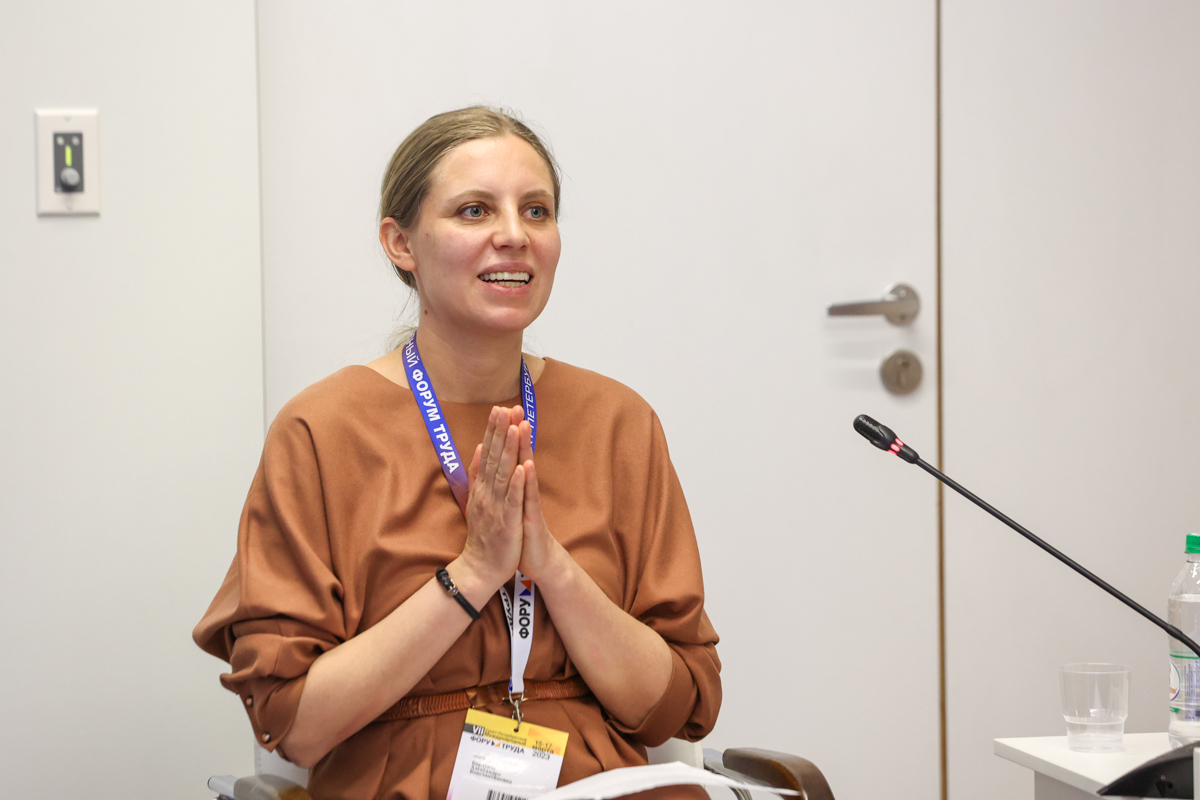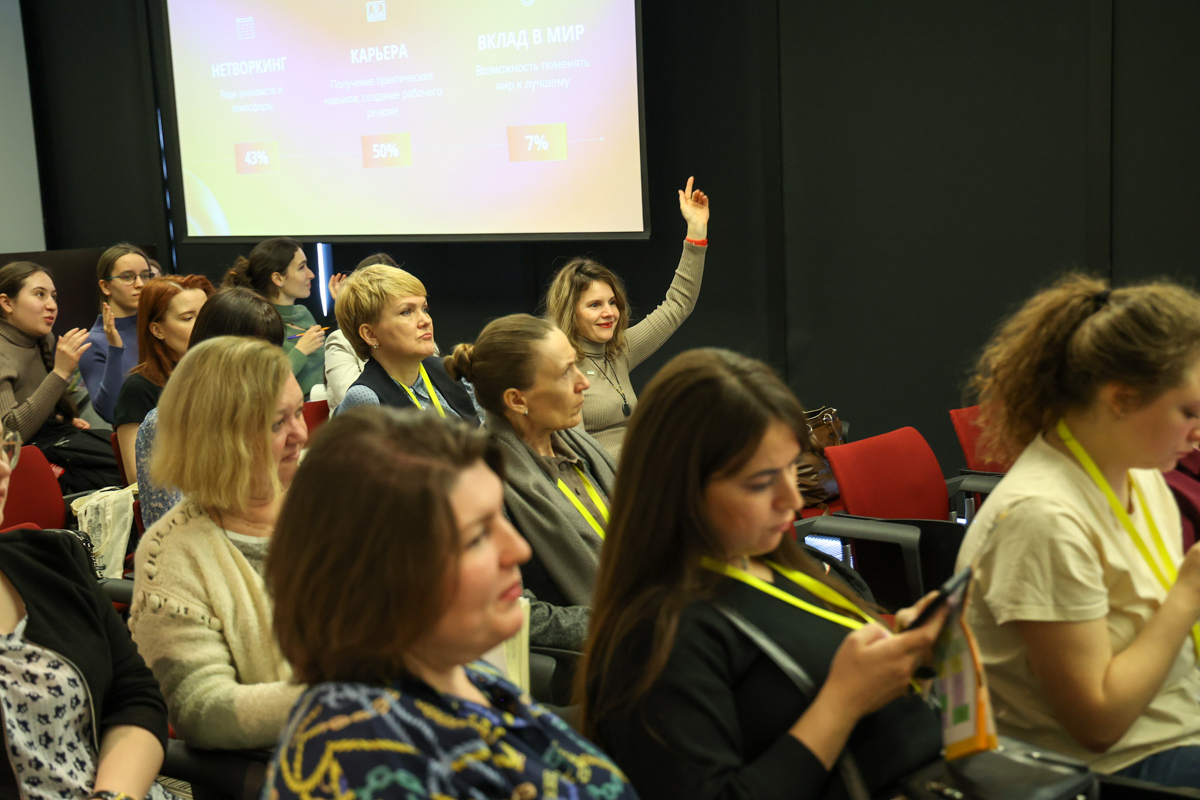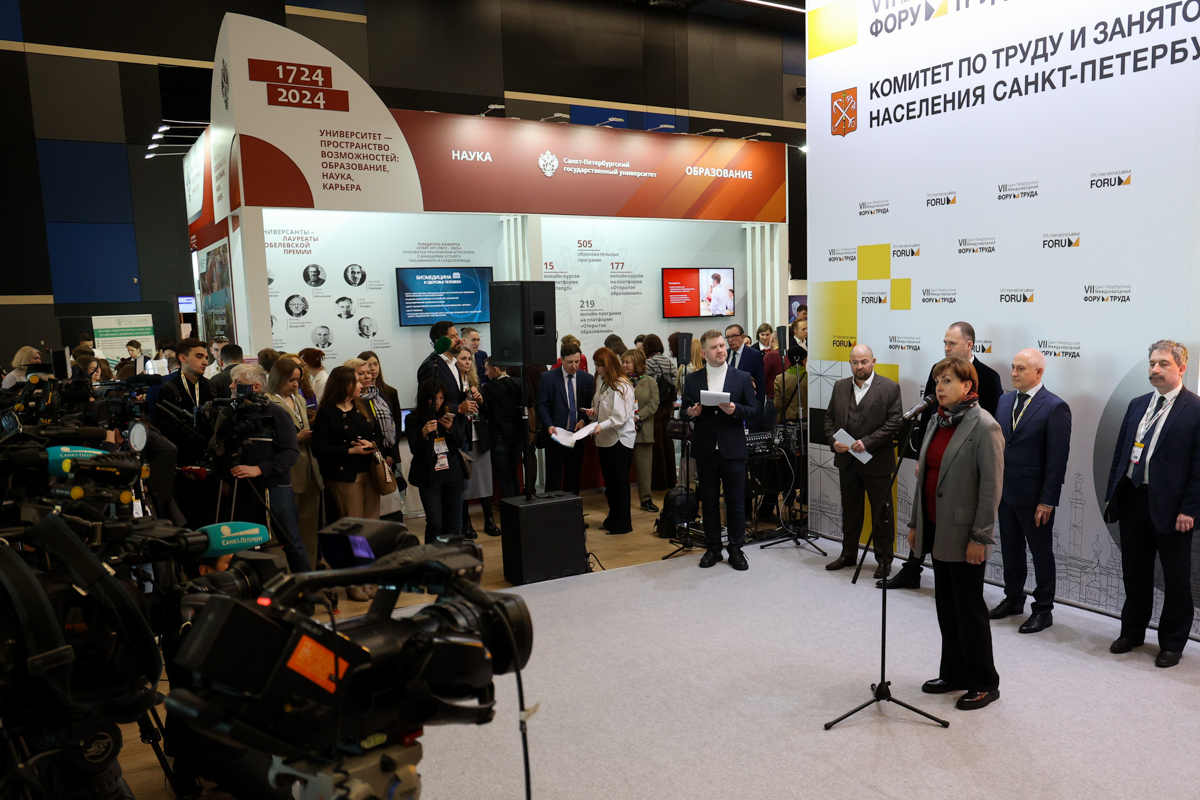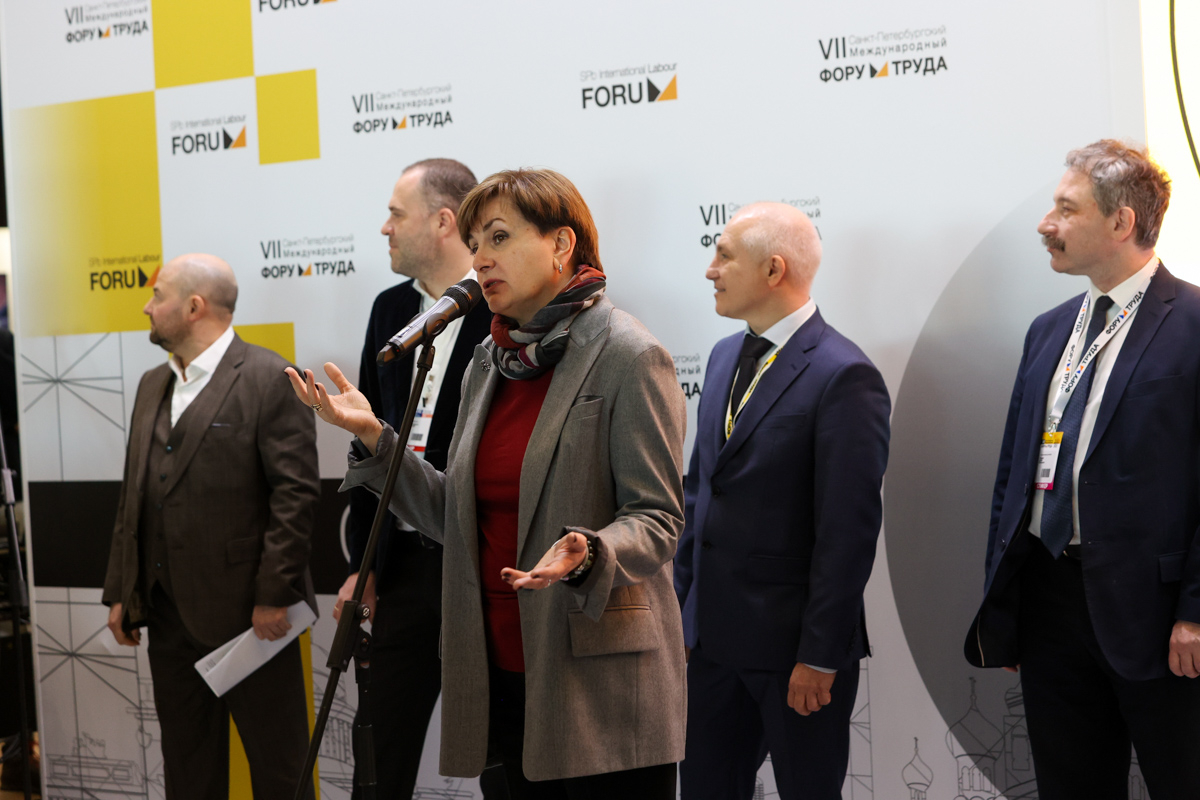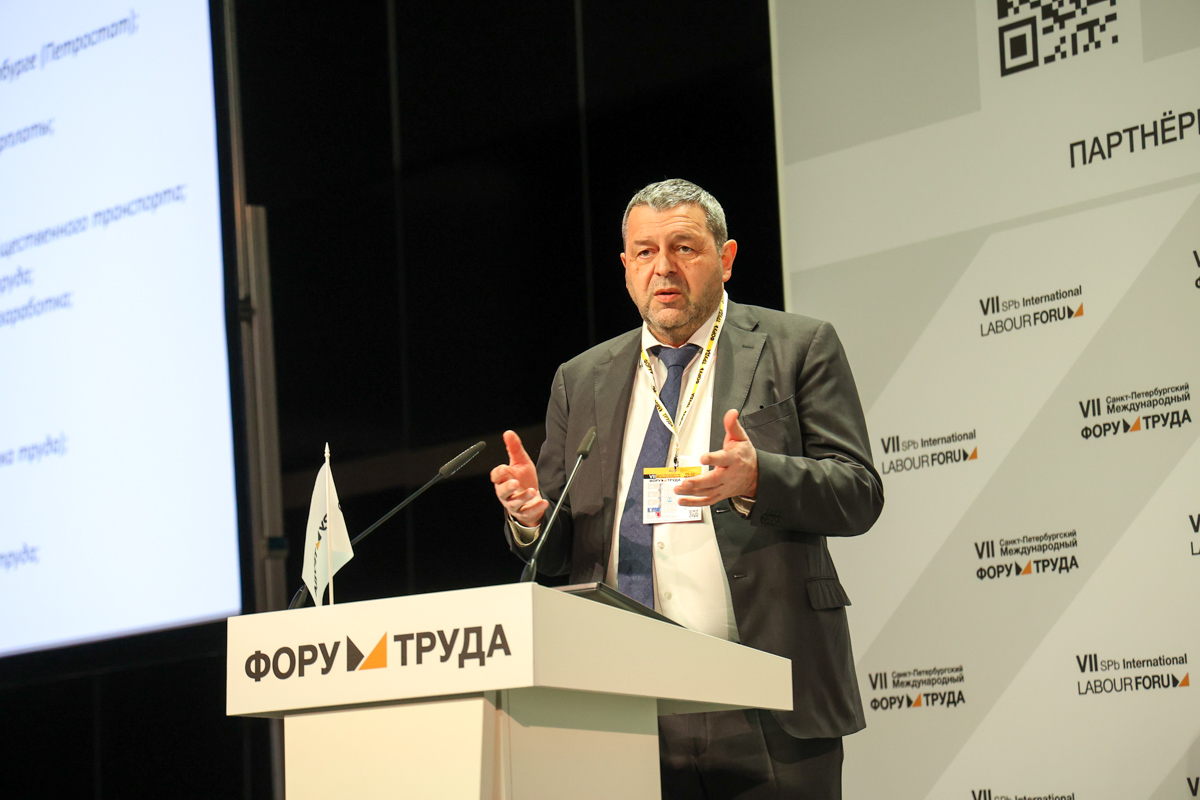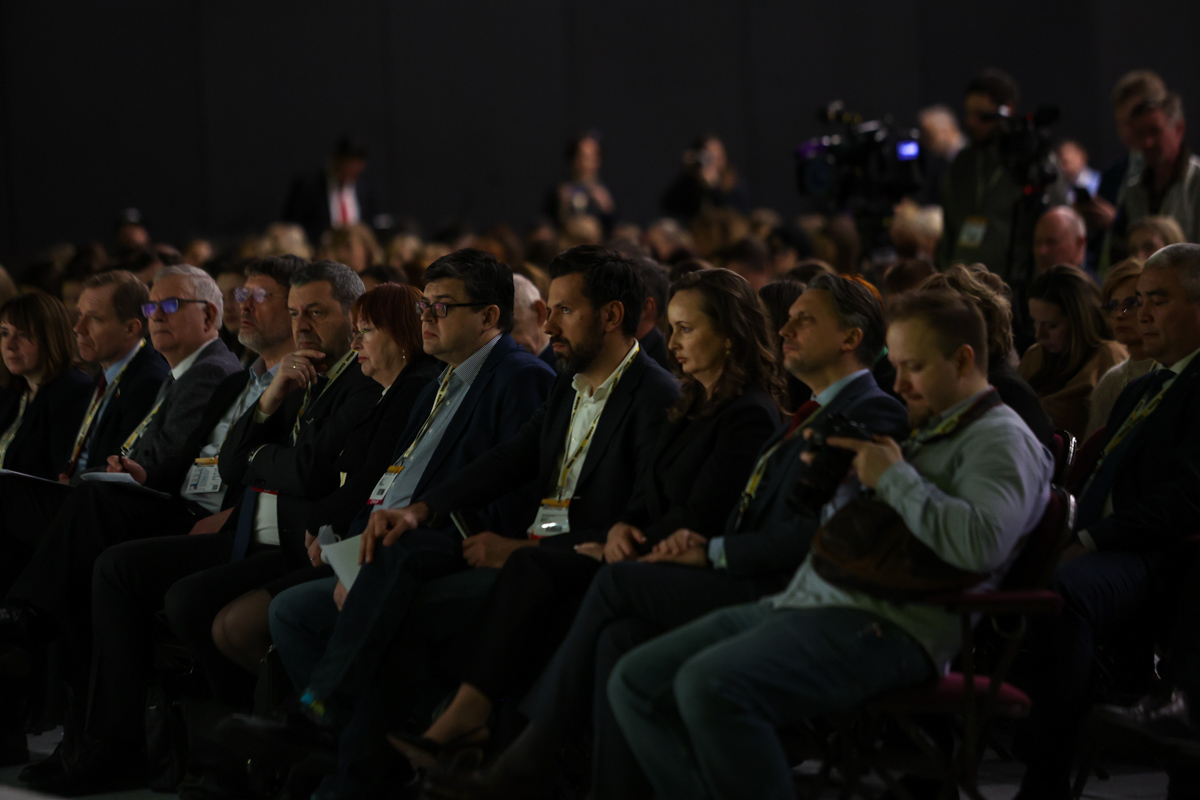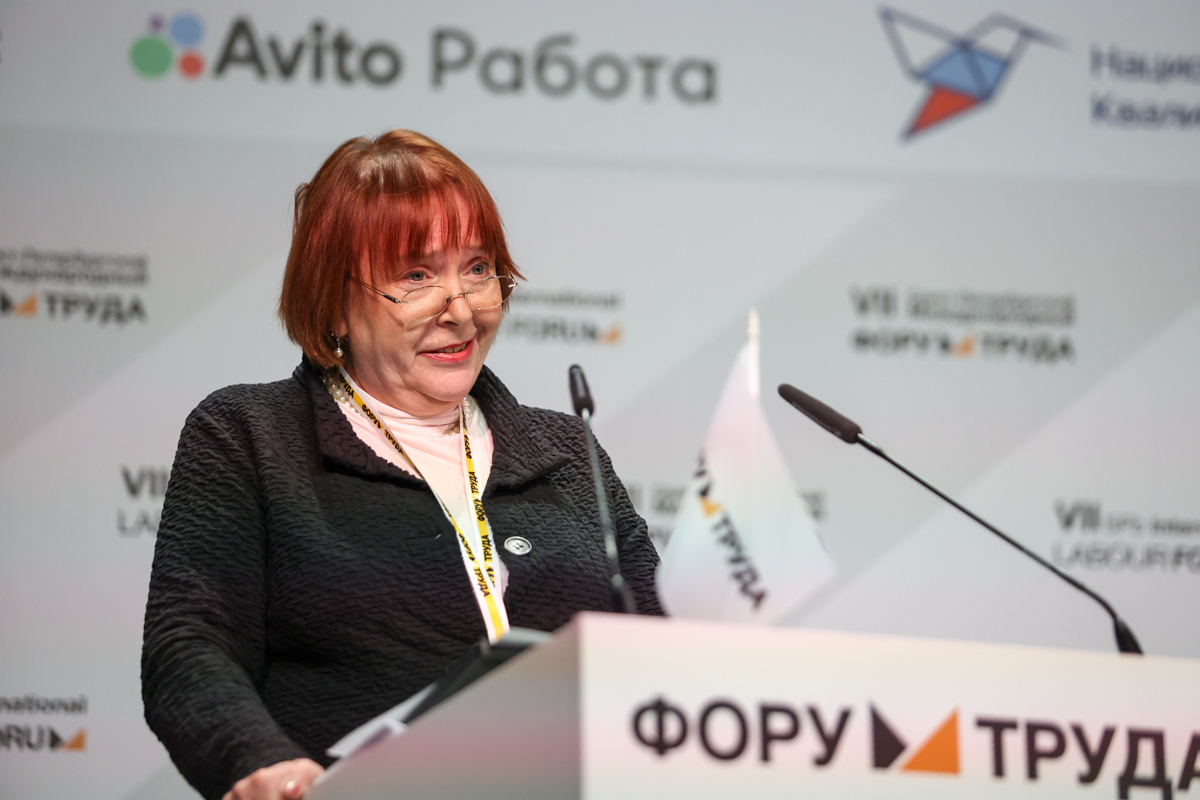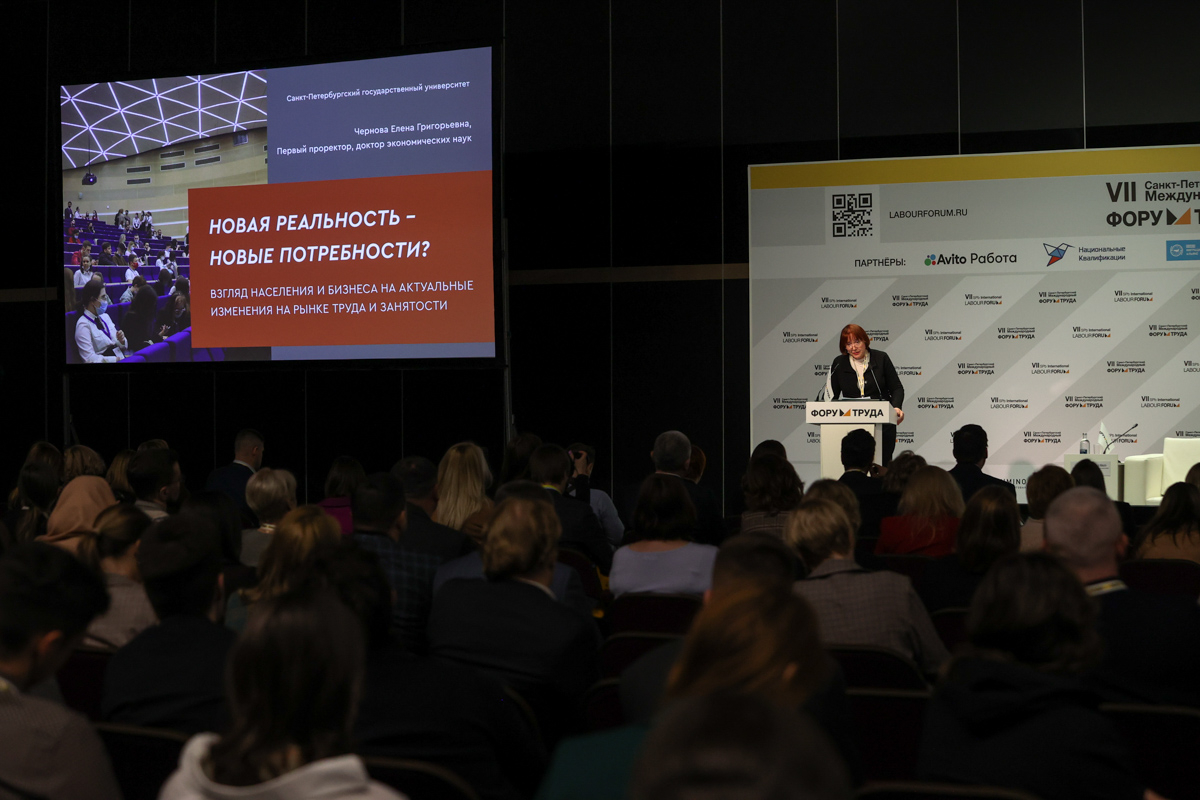St Petersburg University sociologists: A second job is becoming a standard practice for Russians
Almost a third of the citizens of Russia are engaged in side work. Today, it is becoming a method to change their field of activity and monetise their hobbies. These are the findings obtained by experts at the Sociological Clinic of Applied Research of St Petersburg University. They have investigated the changes in the labour and employment markets. Elena Chernova, Senior Vice-Rector of St Petersburg University, presented them at the plenary session of the 7th International Labour Forum titled "Peopleware in the Era of Change: Between New Employment and Total Deficit".
From October 2022 to March 2023, three studies were conducted in the form of surveys and analyses of public discussion in social media. The list of participants included residents of regions of Russia, in particular entrepreneurs and heads of divisions in St Petersburg and the Leningrad Region. The data obtained made it possible to: study the current trends that the general public and businesses are currently facing; and identify the most discussed problems in the context of understaffing.
Over the past year, Russians have faced various changes in the labour and employment markets. They were mainly related to: the structure and nature of employment; changes in the perception of the main trends; and the current situation in the labour and employment markets. The main change was the increase in the number of work tasks, which was noted by almost half of the respondents (51.6%).
The sociologists have seen that a high proportion of people have more than one job on a regular basis. More than 76% of Russians at the time of the study were employed at their main place of work, with 30.3% of them being engaged in side work. For half of this category of citizens, it was of a permanent character. Today, additional employment is no longer perceived as a way to solve financial difficulties only. More and more people, especially the youth, are beginning to perceive it as a smooth transition from one area of activity to another, as well as an opportunity to monetise their hobby. A second job under the current conditions is becoming a standard practice in people’s mind. 42% of Russians believe that the number of people who have more than one job has increased over the past year. Also, almost every second person thinks that more than 50% of the population of their town or region have an additional job.
’Nevertheless, additional employment of citizens often belongs to an unsettled area of law. Almost every third Russian works outside the legal framework, on the basis of verbal agreements. Their relations with the employer are not supported by a civil law contract,’ Elena Chernova noted. ’This area requires some governmental regulations. They should not be tough, but it is impossible not to pay attention to this issue.’
Changes have also taken place in the perception of work. ’Earlier, the list of success criteria included the following: career growth; occupying a certain position in society and social status; and a high salary. Today, one more factor has emerged. That is the availability of free time in all forms of employment,’ Elena Chernova added.
When organising their life and work, people want not only to receive a certain salary and occupy a high status in society, but to have free time for creative activities and development. That becomes a criterion for the success of a person.
Elena Chernova, Senior Vice-Rector of St Petersburg University
More than 72% of Russians listed enjoyment of work as another significant criterion, while high wages are important for 59.3% of the respondents. The trend for mobility in the field of employment is also gaining popularity. Almost 60% of citizens believe that it is necessary to change their place of work from time to time; 42.5% are sure that the field of activity should be changed; and 29.4% speak about changing the region of residence. Russians consider 4 to 5 years to be the optimal time interval for changing jobs. Young people are particularly inclined to that. ’In this regard, our regions do have a future in terms of being in demand among professionals in the relevant regional labour market, provided that the infrastructure is adequately developed,’ Elena Chernova, Senior Vice-Rector of St Petersburg University, noted. ’Middle and top managers in large companies are increasingly experiencing professional burnout and want to change their job. They also want to change the place of residence and move to another region.’
The perception of understaffing in various sectors of the economy varies, depending on the sector. It has been reflected in public discussions on social media over the past five months. According to our citizens, it is most obvious in healthcare and education. The problem of a federal scale, discussed in half of the publications, is the shortage of various kinds of medical workers, from doctors to nurses. Most of such discussions were in late December 2022, during the increase in the seasonal incidence of influenza. The shortage of personnel in the field of secondary education is no less acute.
Along with the changes in the business sector employment, changes in personnel policy have taken place as a response to emerging socio-economic conditions. 51% of businesses in St Petersburg and the Leningrad Region have managed to recover and return to a stable state, and 15% of them are in the growth stage. Companies used different methods for their recovery. Very small businesses, which were the first to face financial and logistical difficulties, took a focus on reducing their personnel expenses. In particular, they insisted on their employees’ status to be changed to "self-employed". The main problem for small businesses was understaffing. At present, they need their employees to develop particular skills. Training and retraining of personnel must therefore become the main focus for small businesses.
A third of the understaffed companies need two or more types of employees. The key skills are: communication skills (48.5%); the ability to work in uncertainty (48%); and digital skills (41%). The demand for do-all professionals on the part of businesses and for the acquisition of new skills on the part of the population is now very evident. More than 11% of Russians are planning to undergo retraining, and almost a quarter of them are in search of professional development.
For both the businesses and the public, the multitasking abilities of a professional become one of the main mechanisms for adapting to instability.
Experts from St Petersburg University acted as moderators and participants in various events of the Labour Forum. One of the key events is traditionally the K.U.B. exhibition. It is dedicated to the transition from the labour market to the employment market. Speaking at its grand opening, Marina Lavrikova, Senior Vice-Rector for Academic Activities at St Petersburg University, noted that the Labour Forum held in St Petersburg is a unique event. It explores issues that are not represented at other venues in Russia on such a scale.
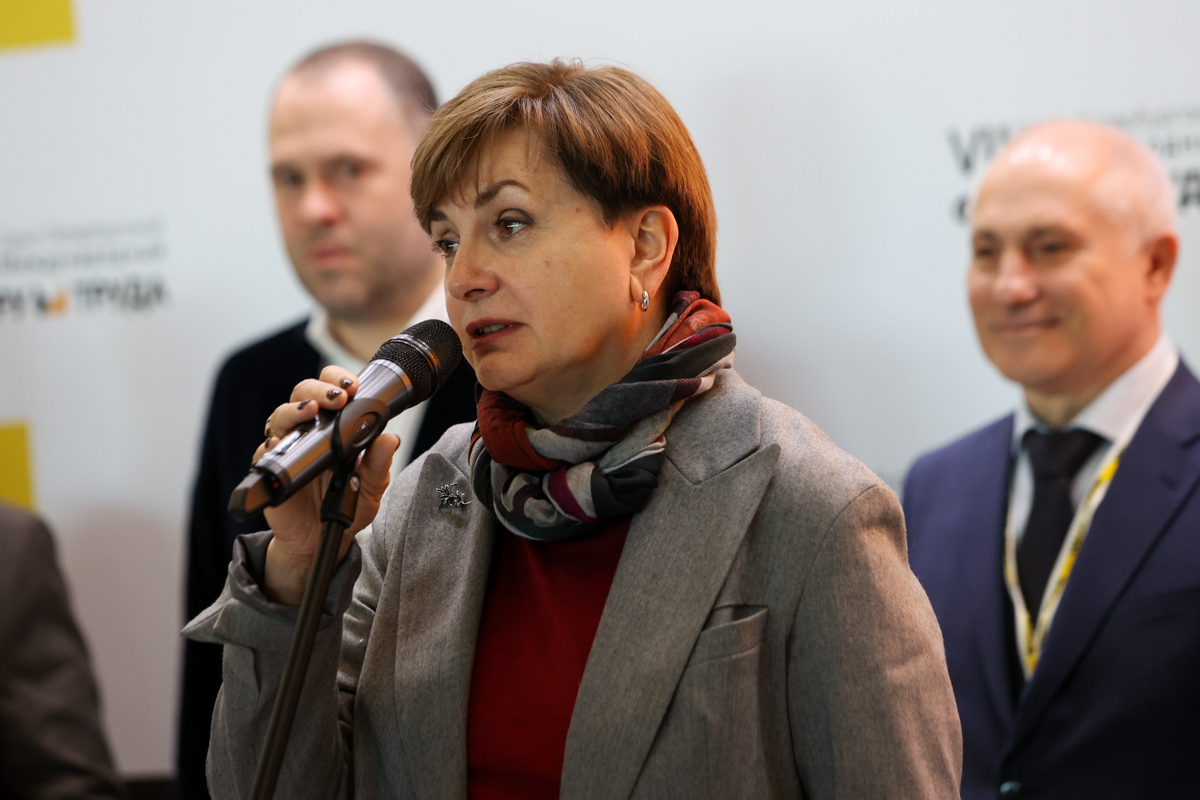
’The subject of today’s exhibition is again, like in all those seven years, related to labour and safety. As an expert who has devoted the whole life to the issue of labour relations, I can say that everything in our lives is based on that. In one way or another, almost each of those present here is involved in such relations. Even now, without even thinking about it, they are under the influence of certain occupational safety standards,’ Marina Lavrikova emphasised. ’Realising how important this problem is, the University has launched the Graduate School of Occupational Safety project as a follow-up to the previous Forum. I hope that this is our contribution to the development of this area.’
The moderator of the interactive round-table discussion with workshop elements titled ’Women’s Career Trajectories in Conditions of Uncertainty’ was Aleksandra Bordunos, a lecturer in the Department of Organisational Behaviour and Personnel Management, the Graduate School of Management, St Petersburg University. Using evidence from Russian and foreign companies, the participants analysed the best practices for supporting women.
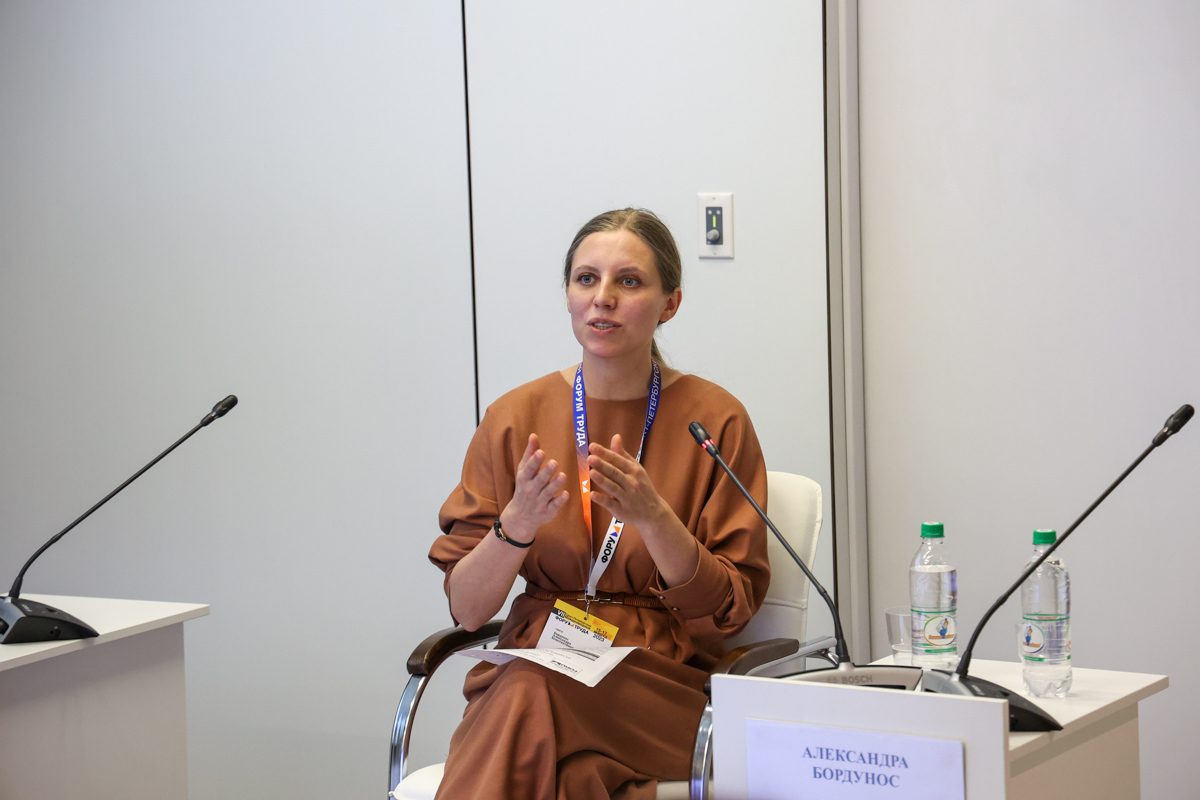
During the academic discussion titled "De-standardisation of Employment in Conditions of Reformatting the Economy", representatives of government bodies and academic community considered conceptual approaches to studying the quality of employment and the issue of its transformation in modern conditions. The discussion was attended by Olesia Verediuk, Associate Professor at St Petersburg University. According to the speakers, the macro shocks of 2022 gave impetus to changes not only in the external environment, but also in labour relations as such, with their characteristic trend of "compression" of the standard employment model.


